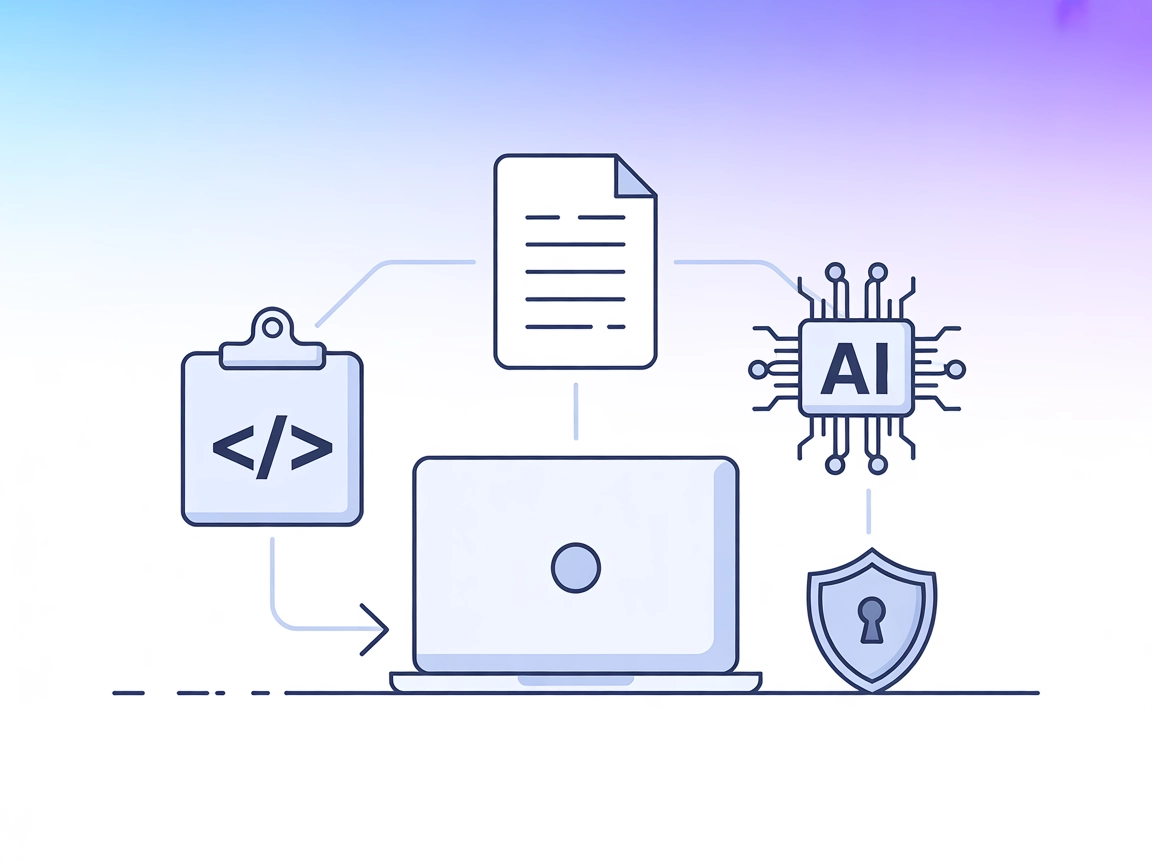
Model Context Protocol (MCP) Server
The Model Context Protocol (MCP) Server bridges AI assistants with external data sources, APIs, and services, enabling streamlined integration of complex workfl...

Integrate Semgrep’s code scanning and vulnerability detection directly into FlowHunt for automated, AI-powered security and compliance in your CI/CD pipelines.
FlowHunt provides an additional security layer between your internal systems and AI tools, giving you granular control over which tools are accessible from your MCP servers. MCP servers hosted in our infrastructure can be seamlessly integrated with FlowHunt's chatbot as well as popular AI platforms like ChatGPT, Claude, and various AI editors.
The Semgrep MCP (Model Context Protocol) Server is a powerful tool that connects AI assistants with the Semgrep code analysis engine, enabling advanced code scanning for security vulnerabilities. Acting as a bridge between large language models (LLMs) and the Semgrep toolset, it allows AI-driven workflows to automatically analyze source code, identify security issues, and integrate these results into broader development or security pipelines. By exposing Semgrep’s scanning capabilities through the MCP protocol, developers and security teams can automate vulnerability detection, enforce code quality standards, and seamlessly incorporate security checks into continuous integration and AI-assisted coding environments.
No prompt templates are documented in the available files or repository.
No specific resources are documented in the available files or repository.
No tools are explicitly listed in server.py or other available files in the repository listing.
mcpServers section:{
"mcpServers": {
"semgrep-mcp": {
"command": "npx",
"args": ["@semgrep/mcp-server@latest"]
}
}
}
{
"mcpServers": {
"semgrep-mcp": {
"command": "npx",
"args": ["@semgrep/mcp-server@latest"]
}
}
}
{
"mcpServers": {
"semgrep-mcp": {
"command": "npx",
"args": ["@semgrep/mcp-server@latest"]
}
}
}
{
"mcpServers": {
"semgrep-mcp": {
"command": "npx",
"args": ["@semgrep/mcp-server@latest"]
}
}
}
To secure sensitive API keys, use environment variables in your configuration:
{
"mcpServers": {
"semgrep-mcp": {
"command": "npx",
"args": ["@semgrep/mcp-server@latest"],
"env": {
"SEMGREP_API_KEY": "${SEMGREP_API_KEY}"
},
"inputs": {
"apiKey": "${SEMGREP_API_KEY}"
}
}
}
}
Using MCP in FlowHunt
To integrate MCP servers into your FlowHunt workflow, start by adding the MCP component to your flow and connecting it to your AI agent:

Click on the MCP component to open the configuration panel. In the system MCP configuration section, insert your MCP server details using this JSON format:
{
"semgrep-mcp": {
"transport": "streamable_http",
"url": "https://yourmcpserver.example/pathtothemcp/url"
}
}
Once configured, the AI agent is now able to use this MCP as a tool with access to all its functions and capabilities. Remember to change “semgrep-mcp” to whatever the actual name of your MCP server is and replace the URL with your own MCP server URL.
| Section | Availability | Details/Notes |
|---|---|---|
| Overview | ✅ | |
| List of Prompts | ⛔ | No prompt templates found |
| List of Resources | ⛔ | No resources found |
| List of Tools | ⛔ | No tools listed in server.py |
| Securing API Keys | ✅ | Example provided in setup instructions |
| Sampling Support (less important in evaluation) | ⛔ | Not mentioned |
| Feature | Supported | Notes |
|---|---|---|
| Roots | ⛔ | Not mentioned |
| Sampling | ⛔ | Not mentioned |
Based on the information above, the Semgrep MCP server provides a clear overview and setup instructions, but lacks public documentation of prompts, resources, or tools in the repository. Given these gaps, the MCP server scores moderately on usability and feature completeness for AI/LLM integration.
| Has a LICENSE | ✅ (MIT) |
|---|---|
| Has at least one tool | ⛔ |
| Number of Forks | 22 |
| Number of Stars | 195 |
The Semgrep MCP Server bridges FlowHunt’s AI agents with the Semgrep code analysis engine, enabling automated and AI-assisted code vulnerability scanning, compliance enforcement, and developer training within your workflows.
Add the MCP server as a component in your FlowHunt flow, configure it with your Semgrep server details, and connect it to your AI agent. This enables security scanning and analysis directly within your automated workflows.
Use cases include automated security scanning in CI/CD, AI-augmented code reviews, enforcing compliance policies, and educating developers on secure coding based on real findings.
Store your API keys as environment variables and reference them in your MCP server configuration (e.g., using `${SEMGREP_API_KEY}`), ensuring sensitive credentials are not hardcoded.
The current public repository does not document any prompt templates or explicit tool listings, so customization is limited to the server’s configuration and Semgrep’s rulesets.
Connect FlowHunt’s AI workflows to Semgrep for real-time code vulnerability scanning, compliance enforcement, and AI-powered code review.

The Model Context Protocol (MCP) Server bridges AI assistants with external data sources, APIs, and services, enabling streamlined integration of complex workfl...

The ModelContextProtocol (MCP) Server acts as a bridge between AI agents and external data sources, APIs, and services, enabling FlowHunt users to build context...

The LLM Context MCP Server bridges AI assistants with external code and text projects, enabling context-aware workflows for code review, documentation generatio...
Cookie Consent
We use cookies to enhance your browsing experience and analyze our traffic. See our privacy policy.